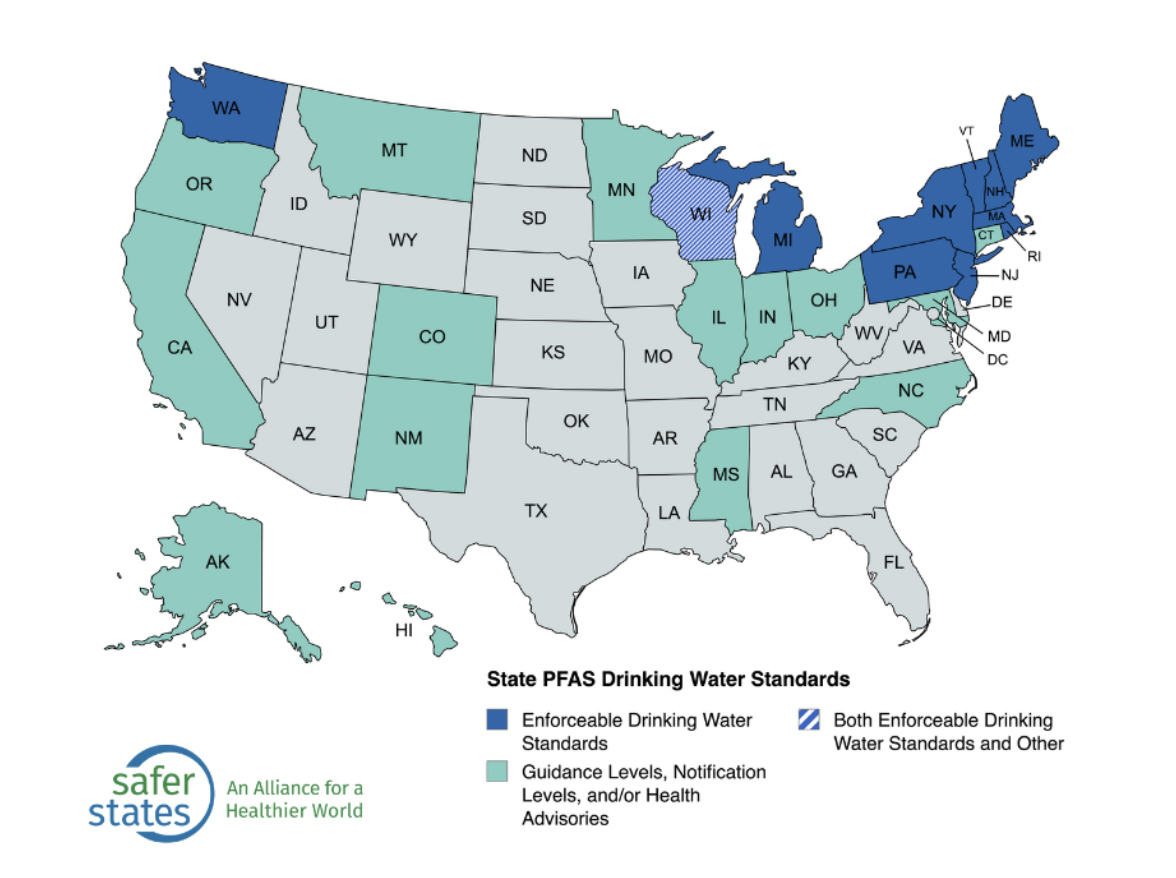The Vermont Senate and House advance legislation (H.238) May 29 that would outlaw the use of toxic perfluoroalkyl and polyfluoroalkyl substances (PFAS) in firefighting gear, dental floss, cleaning products, and fluorine-treated containers—a critical step in reducing Vermonters’ exposure to these harmful substances.
The Senate expanded the bill as passed by the House by adding a provision that prohibits PFAS in firefighting gear beginning in 2029. The House concurred. The specialized gear and equipment used by firefighters often results in repeated exposure to toxic PFAS. Massachusetts and Connecticut have already passed similar restrictions and Vermont’s professional firefighters have offered their support for H.238.
According to the Vermont Dept. of Health, PFAS exposure can lead to reproductive and developmental disorders, decreased antibody response to vaccines, pregnancy-induced hypertension and preeclampsia, certain types of cancer, and more. In fact, the CDC has found that nearly all people in the U.S. have PFAS in their blood.
H.238 builds on earlier legislation adopted in Vermont that addressed PFAS in personal care products, menstrual products, textiles, cookware, rugs and carpets, artificial turf, ski wax, and more.
“This law will be another important step toward protecting Vermonters and our environment from exposure to toxic PFAS,” said Anna Seuberling, environmental health advocate with the Vermont Public Interest Research Group (VPIRG). “In fact, it’s hard to imagine a more direct path of exposure than using a string coated with PFAS to clean your teeth every day.”
“This legislation offers more common-sense protections for Vermonters who are regularly exposed to toxic PFAS substances,” said Lauren Hierl, executive director of Vermont Natural Resources Council. “As PFAS ‘forever chemicals’ continue to harm Vermonters’ health and contaminate our drinking water, the urgency of turning off the tap of PFAS coming into our state continues to grow – and this bill takes critical steps to stem the flow.”
“Reducing and eliminating PFAS in consumer goods and the environment protects personal and public health,” said Senator Virginia Lyons, chair of the Senate Health and Welfare Committee. “Removing PFAS from products including dental floss, cleaning products, firefighting equipment, and textiles limits exposures that could lead to cancer, lower antibody response to vaccines, or negative child development outcomes.”
Background on PFAS chemicals
Chemical companies sell PFAS (per- and polyfluoroalkyl substances) for application to products such as paper and textiles as stain-resistant, water-repellent, and grease-proofing treatments. These toxic compounds are also widely used in industrial processes and then discharged into waterways. PFAS have been linked to serious health problems such as cancer, immune system suppression, increased cholesterol levels, pregnancy-induced hypertension, liver damage, reduced fertility, and increased risk of thyroid disease. PFAS has been found in breast milk and in most products labeled stain- and water-resistant. PFAS are known as “forever” chemicals because they persist and don’t break down in the environment. Research has found that 3M knew in the 1970s that PFOA and PFOS are dangerous.
For more information, visit Safer States’ Alliance Impact on PFAS at: saferstates.org/priorities/pfas.




